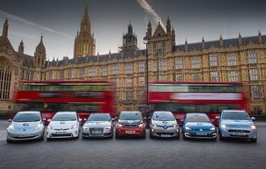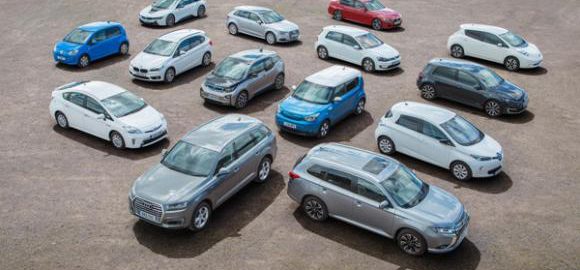As recently as five years ago the prospect of our roads being filled by electric cars seemed unlikely. Although the technology had accelerated dramatically in the previous five years, there were still so many obstacles to overcome, not least of which were the vehicle’s limited run time and the non-existent infrastructure necessary to accommodate them (no charging points).
Nay-sayers still look askance at the electric car even now, but with London sales rocketing up 85% this year, it’s hard to deny that it is beginning to come into ascendance.
In cars as in practically every other part of life, London can be easily dismissed as being in its own reality-free bubble. Journeys in England’s south-east are typically shorter than elsewhere in the UK, and because it’s home to most of the ‘people who matter’ for at least half of the year, developments happen at a far speedier pace – the likelihood of finding an electric vehicle charging point in London is, one would imagine, far higher than in rural Shropshire or the Scottish highlands. However, it would be wrong to reject these figures out of hand; with more than 10,000 electric vehicles now owned across the UK, this is more than just a Capital-based blip. So why are electric cars gaining such popularity, and are they worth it?

Firstly, it’s important to know that there are two types of electric powered car. The most common runs on a battery which needs to be charged before use. Less common is the hydrogen fuel-cell battery powered car, which uses the engine’s motion to fuse hydrogen with oxygen to create electricity: clever but expensive and therefore currently less popular – although that may change as prices stabilise.
Regardless of the type of battery it uses, there are three key reasons why it makes sense to go electric:
Cutting costs
Costing as little as 2p per mile to charge, the electric vehicle is extremely economical to run. And because their inner workings are a lot less complicated than a traditional combustion engine, electric cars are cheaper to maintain; it’s estimated that the Nissan Leaf costs a meagre £11 per month, versus £30p/m for the Ford Focus.
Cutting carbon
Air pollution is increasingly appearing on the international agenda, with a recent report stating that more than 40,000 early deaths per year are linked to the problem in the UK alone. Electric cars produce no emissions, so driving one is no worse for the environment than walking.
Add to that, in purchasing an electric vehicle you’re purchasing cutting edge tech and that applies as much to the driver interface as it does to the internal mechanisms. In short, if you want the bells and whistles you’ll find them in electric cars.
So what about the flip side?
Range anxiety
There’s no arguing with the fact that even though electric cars can travel far further than they ever could before, they still come with the niggling concern of ‘what if I run out of power?’ No one wants to be stuck on a country lane with no way of powering their vehicle.
Expense
Going green has always come with government subsidies, but even still electric vehicles do still require a higher than average initial outlay and this can present a major deterrent.
Whether an electric car is worth the investment is entirely down to individual perspectives. As independent vehicle supply professionals, at OSV we’ve watched the development of electric with close interest. The environmental credentials are deeply appealing, and with the global issue of diminishing oil supplies producing very real concerns for the future, in our view green could be the way to go.
Read more: Huffington Post

